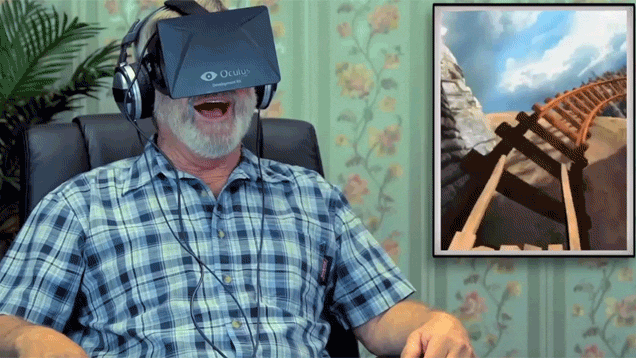Epochs pass, cultures rise and fall, but if they do so between a telephone call and the reply, they can cause a shock to the system of individuals and societies that are difficult to withstand.
Despite the racist scapegoating of the recent Presidential election, most jobs that have been disappeared from Middle America’s manufacturing sector have vanished into the zeros and ones of automation rather than through offshoring. Many have puzzled over why this transition hasn’t resulted in a productivity spike. Is there not enough demand because of the decline of wages? Is there another inscrutable reason?
Tough to say, but while economists are working out the fine points, more jobs, and even industries, will be placed in robotic hands, and the pace of the changeover will quicken as the tools become more powerful. If the process happens too rapidly, however, the driverless cars will handle smoothly but our ride will be bumpy. In an Atlantic article by Alana Samuels about the regions of America most likely to be upended by algorithms in the near term, there’s this harrowing passage:
Previously, automation had hurt middle-class jobs such as those in manufacturing. Now, it’s coming for the lower-income jobs. When those jobs disappear, an entire group of less-educated workers who already weren’t making very much money will be out of work. [Johannes] Moenius worries about the possibility of entire regions in which low earners are competing for increasingly scarce jobs. “I wasn’t in L.A. when the riots happened, but are we worried about this from a social perspective?” he said. “Not for tomorrow, but for 10 years from now? It’s quite frankly frightening.”•
That’s a particularly dystopic view, and maybe technological progress will be slower than expected, but sooner or later, we’ll be forced to change our focus as we’re relieved of our traditional duties. As Kevin Kelly says: “We’re constantly redefining what humans are here for.”
In a clever Guardian essay, Yuval Noah Harari wonders about the future of the post-work “useless class.” In the piece, the historian tries to divine what we’ll be using our wetware for should intelligent machines permanently displace a wide swath of the citizenry. He believes we’ll subsist on Universal Basic Income and occupy ourselves playing video games enhanced by VR and AR. An endless, mass participation version of Pokémon Go, would be, god forbid, the new religion, though Harari is contrarian in believing it won’t be much different from the life we already know.
Hundreds of millions already spend countless, unpaid hours creating free content for Facebook, so I suppose his vision is possible if not plausible. Either way, let’s hope tomorrow will involve more than Taylor Swift and an Oculus Rift.
The opening:
Most jobs that exist today might disappear within decades. As artificial intelligence outperforms humans in more and more tasks, it will replace humans in more and more jobs. Many new professions are likely to appear: virtual-world designers, for example. But such professions will probably require more creativity and flexibility, and it is unclear whether 40-year-old unemployed taxi drivers or insurance agents will be able to reinvent themselves as virtual-world designers (try to imagine a virtual world created by an insurance agent!). And even if the ex-insurance agent somehow makes the transition into a virtual-world designer, the pace of progress is such that within another decade he might have to reinvent himself yet again.
The crucial problem isn’t creating new jobs. The crucial problem is creating new jobs that humans perform better than algorithms. Consequently, by 2050 a new class of people might emerge – the useless class. People who are not just unemployed, but unemployable.
The same technology that renders humans useless might also make it feasible to feed and support the unemployable masses through some scheme of universal basic income. The real problem will then be to keep the masses occupied and content. People must engage in purposeful activities, or they go crazy. So what will the useless class do all day?
One answer might be computer games. Economically redundant people might spend increasing amounts of time within 3D virtual reality worlds, which would provide them with far more excitement and emotional engagement than the “real world” outside. This, in fact, is a very old solution. For thousands of years, billions of people have found meaning in playing virtual reality games. In the past, we have called these virtual reality games “religions.”
What is a religion if not a big virtual reality game played by millions of people together?•

